WHH 2nd Semester Final (no WWI)
1/132
Earn XP
Description and Tags
World History Honors 2nd Semester Final Review Quizlet (No World War One)
Name | Mastery | Learn | Test | Matching | Spaced | Call with Kai |
|---|
No analytics yet
Send a link to your students to track their progress
133 Terms
British East India Company
organization that originally traded with but then later governed India
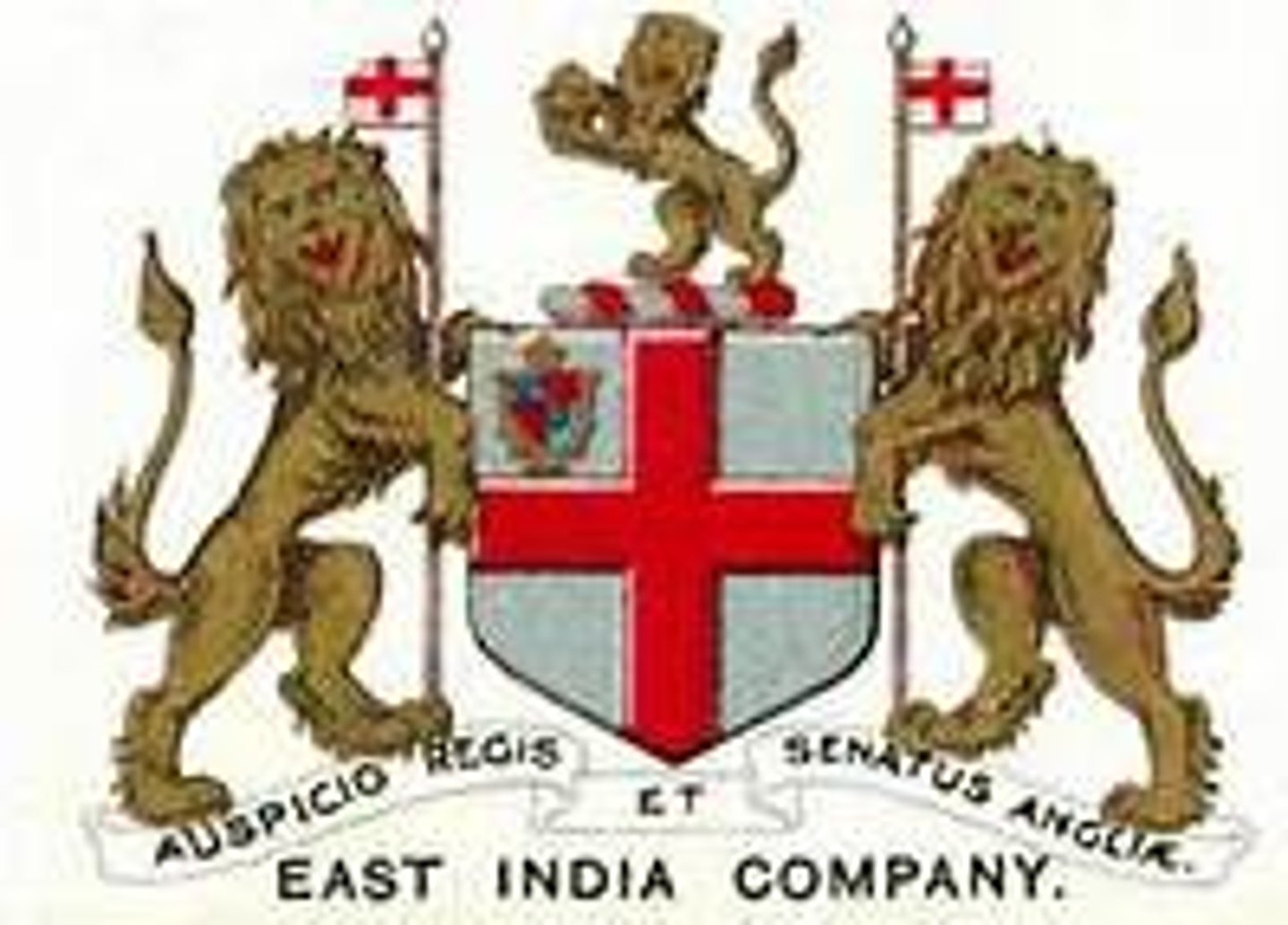
sepoy
an Indian soldier for a European trading company
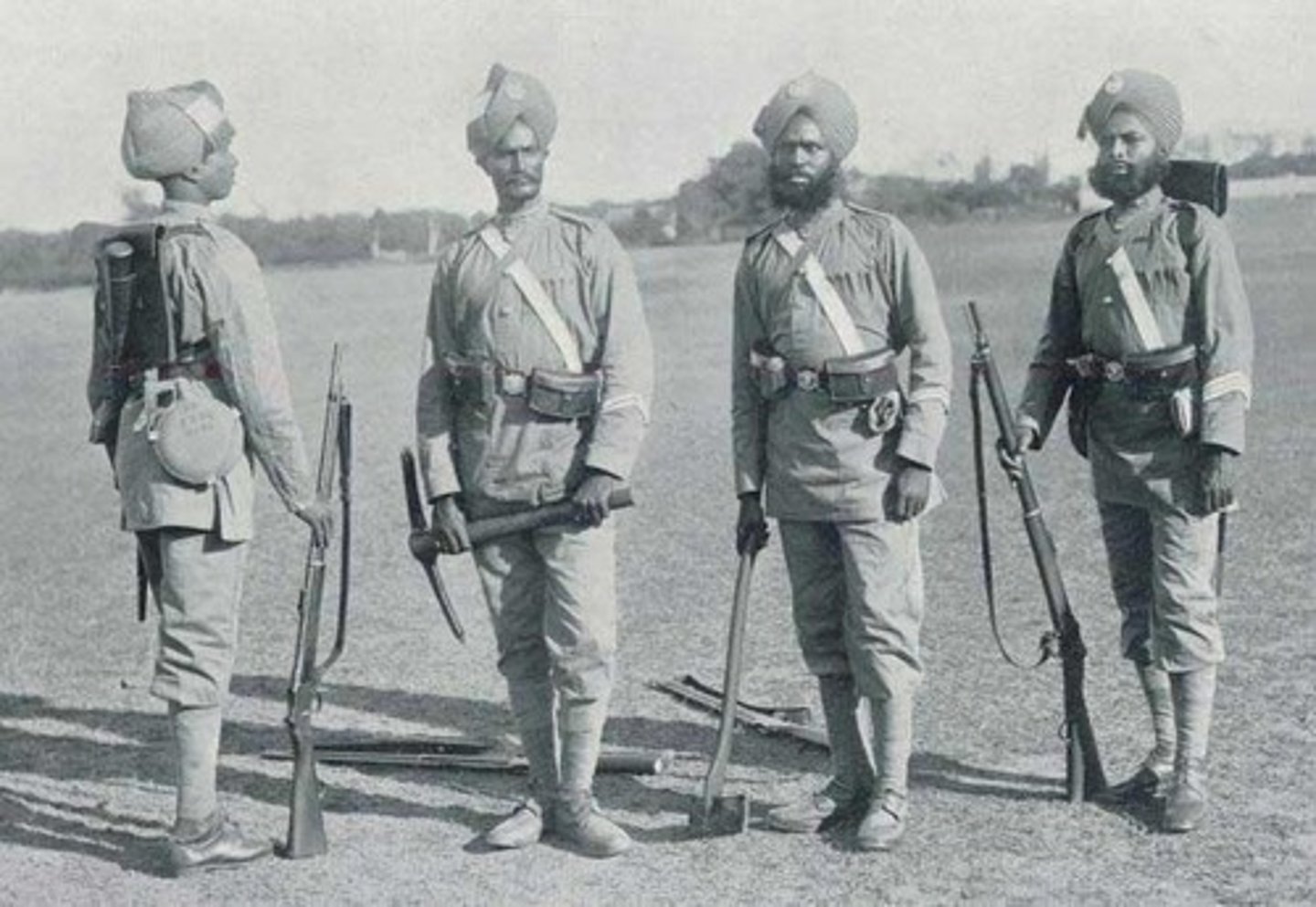
Mohandas Gandhi
his use of passive resistance did much to help India achieve its independence from Great Britain
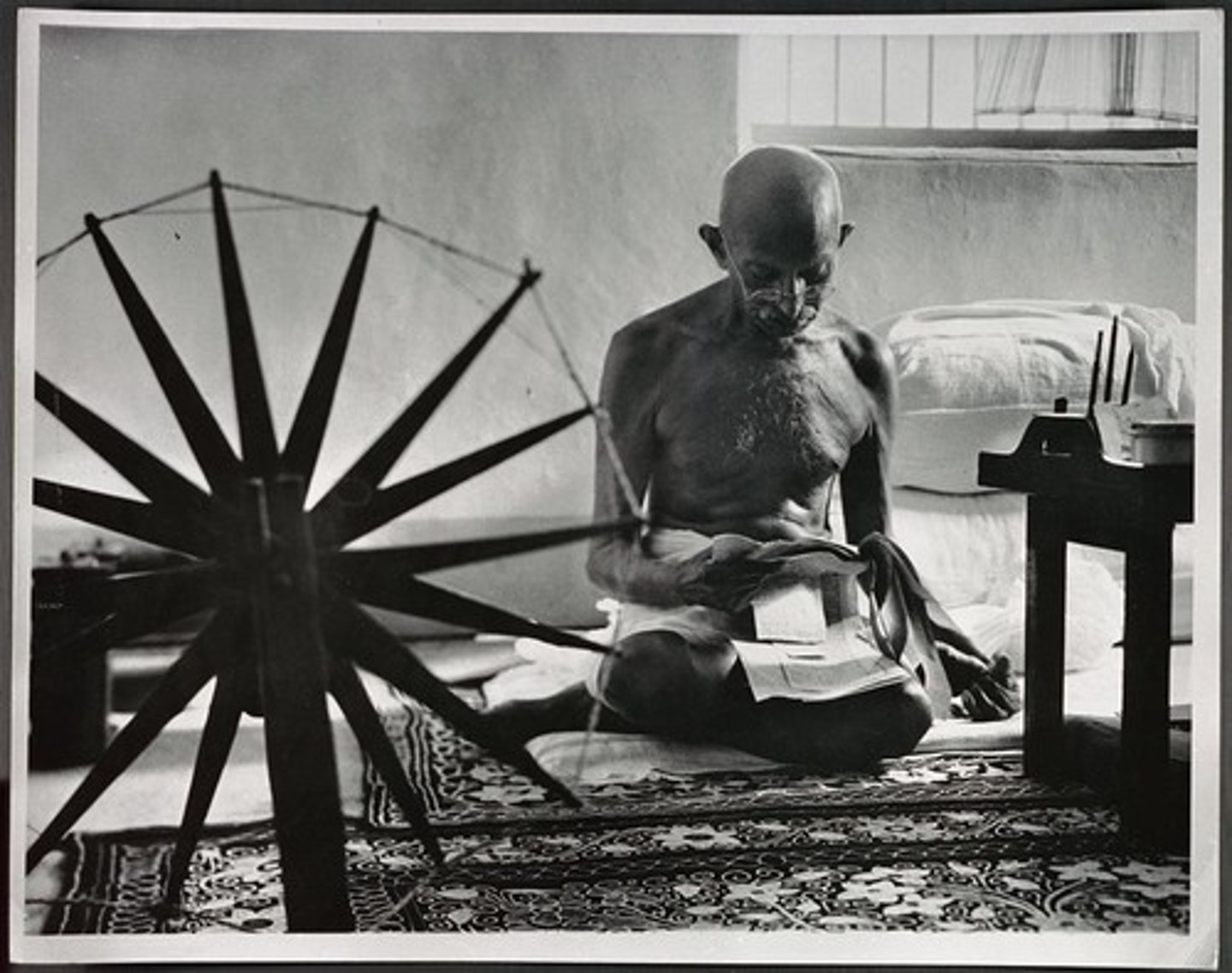
Salt March
example of passive resistance when Gandhi and his followers walked 200 miles to the ocean where they harvested an "illegal substance"
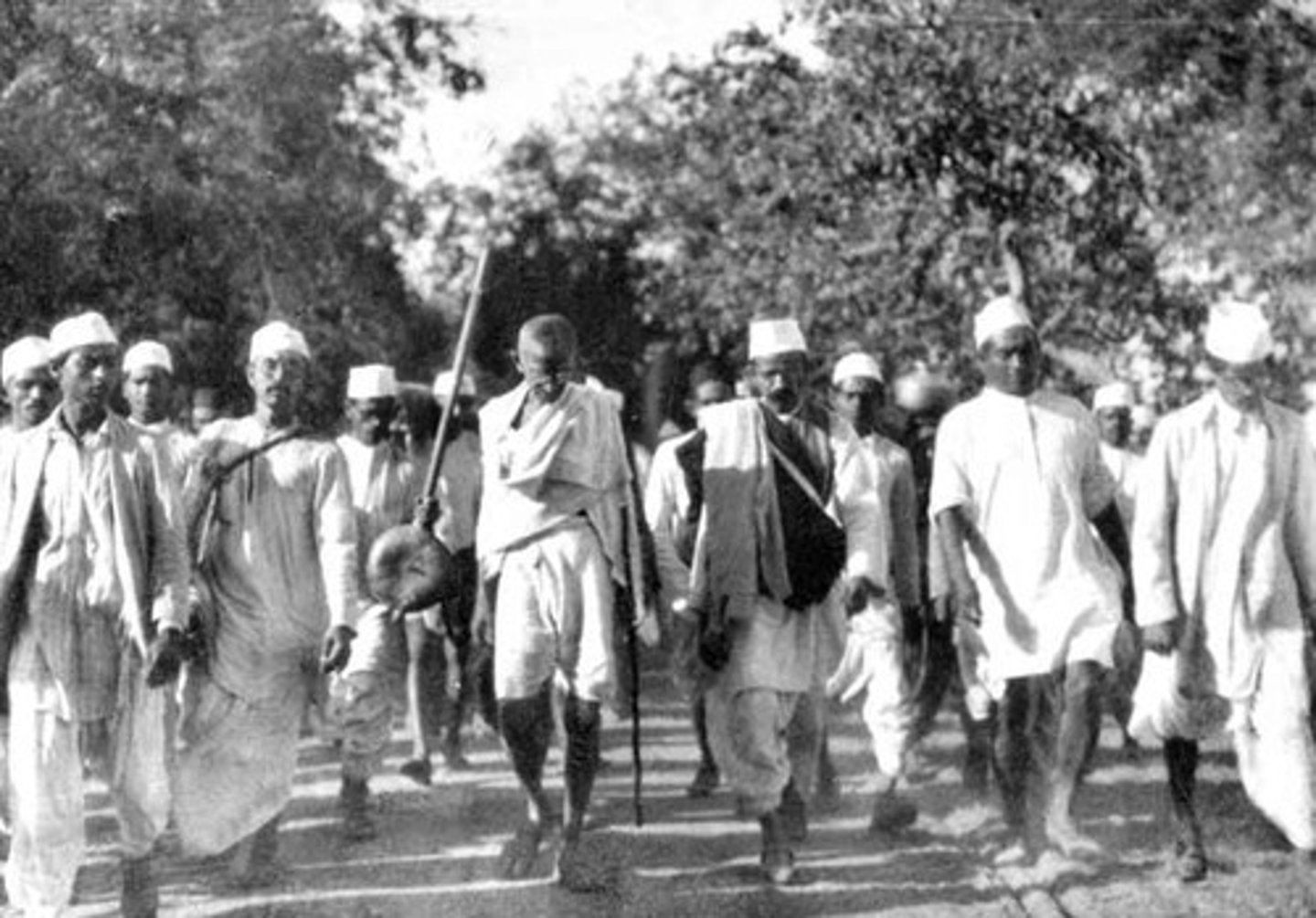
raj
word used to describe the era of British rule over India
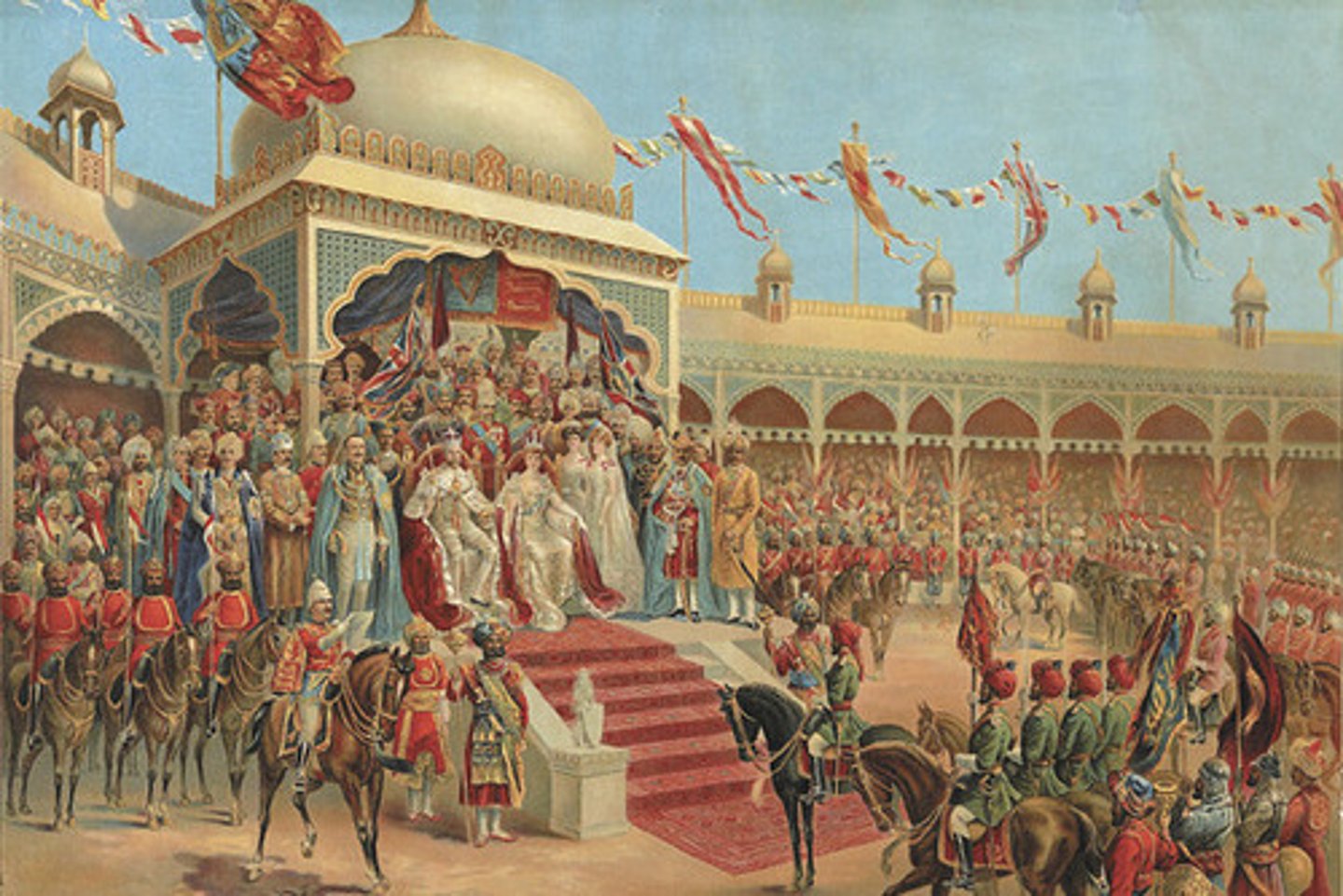
The Great Indian Rebellion
event when the Indian people rebelled against their British rulers in response to yet another instance of British insensitivity; resulted in greater, not less, British control over India
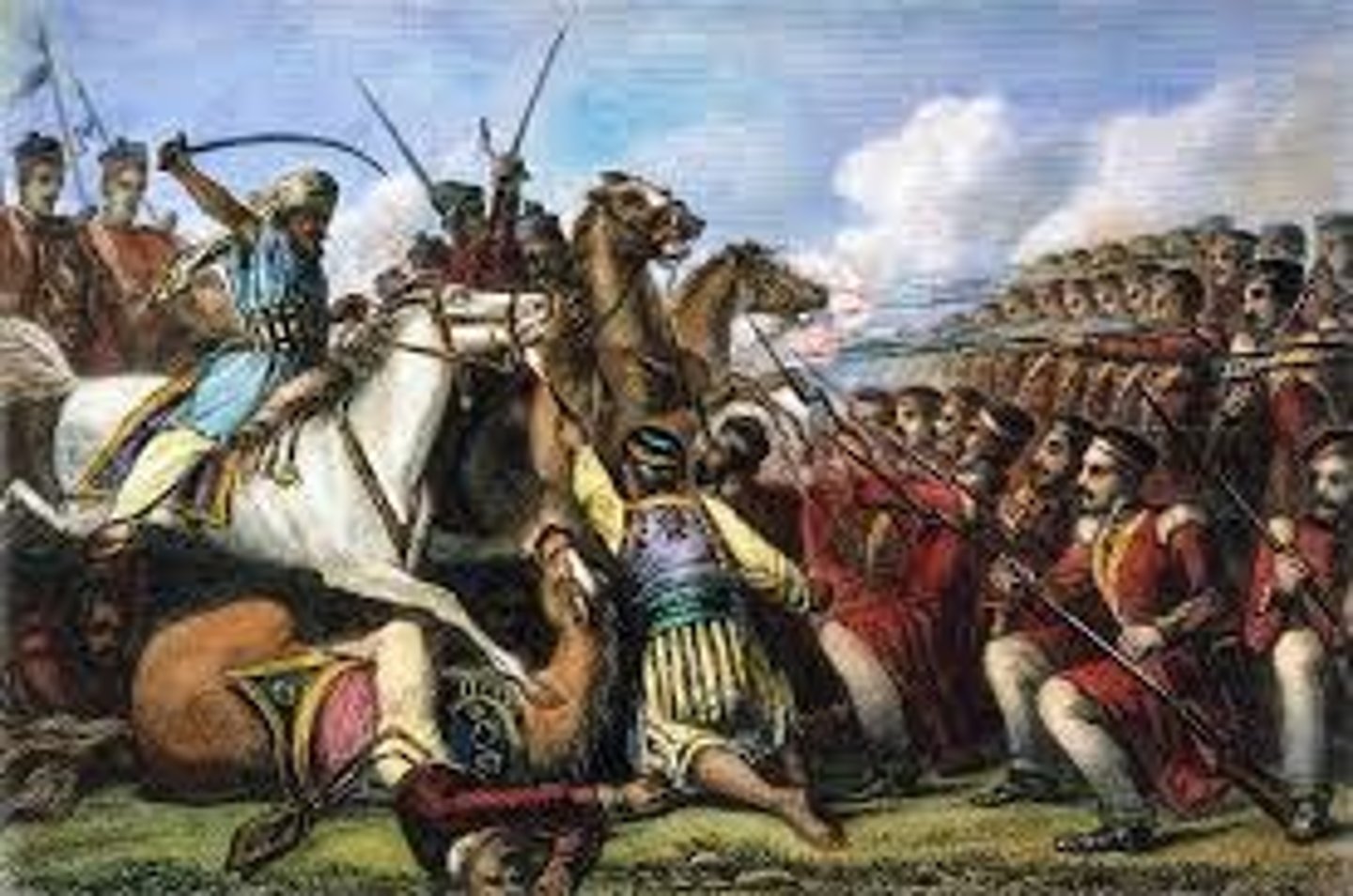
Amritsar Massacre
1919 event in which the British opened fire on an unarmed, peaceful crowd of Indians who had gathered to protest British rule
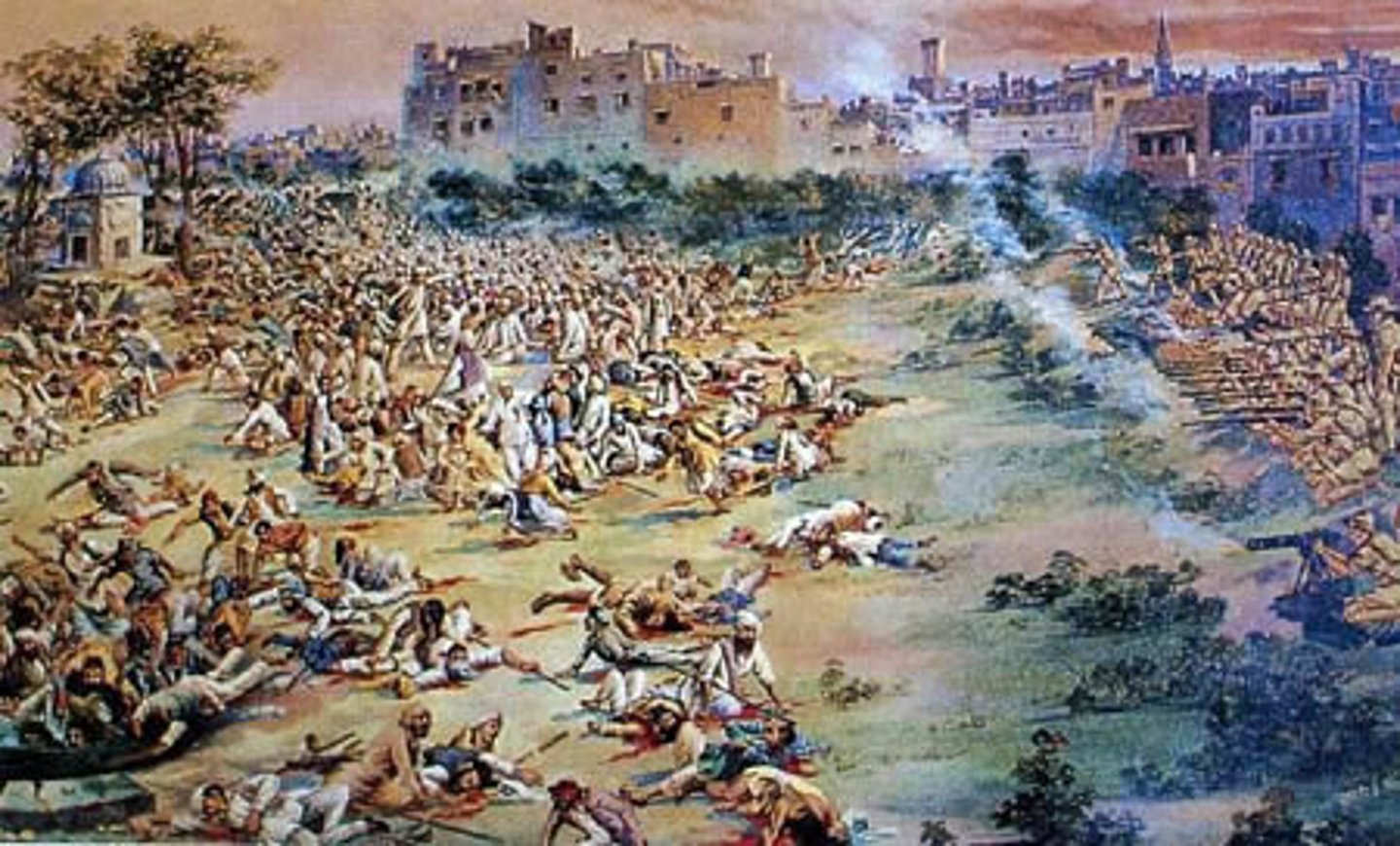
Jawaharlal Nehru
first prime minister of India; he shared Gandhi's belief in Indian freedom, but disagreed with the kind of India that was to emerge afterwards
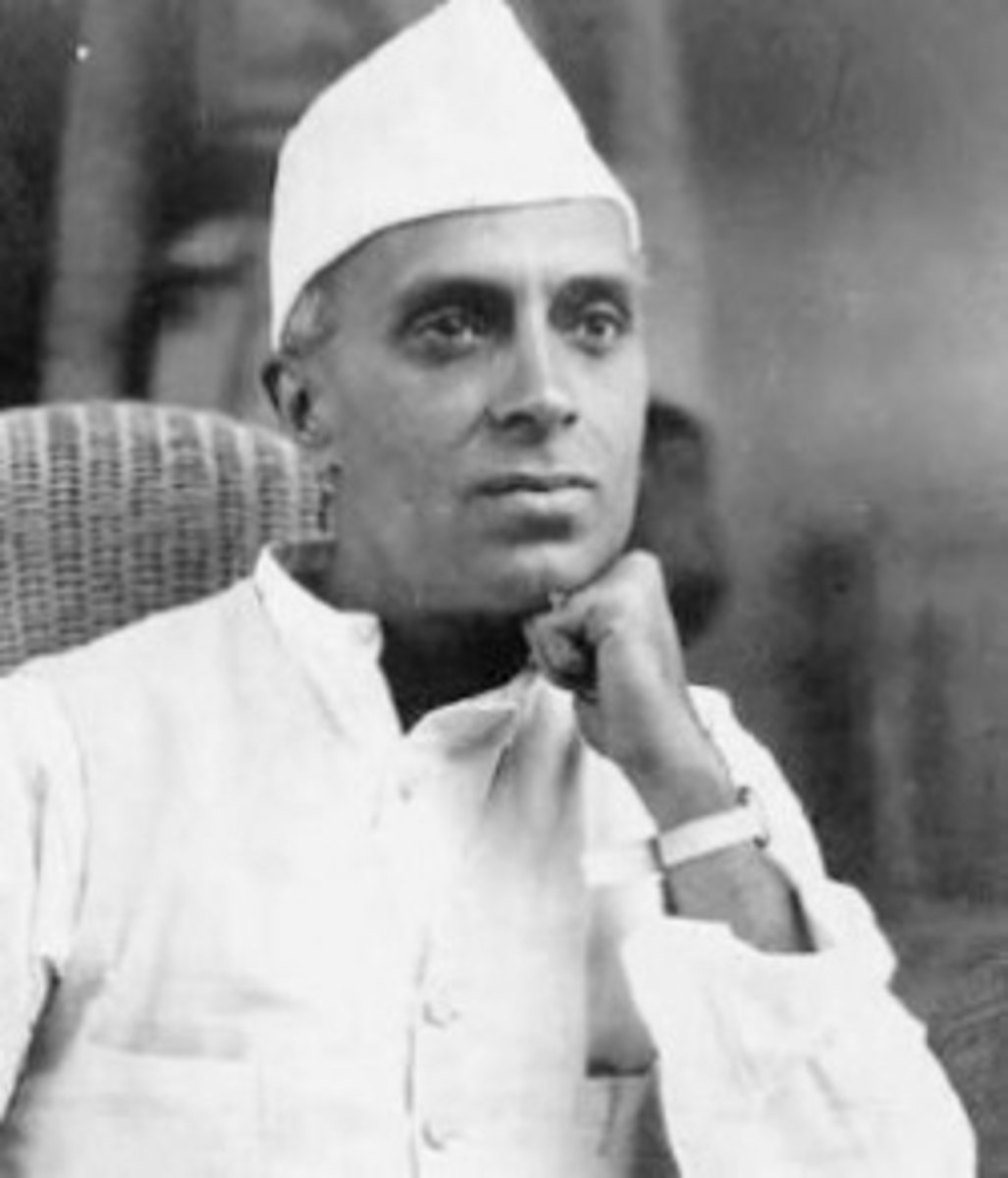
Muhammad Ali Jinnah
first president of Pakistan; favored Indian independence from Britain but supported partition into separate countries
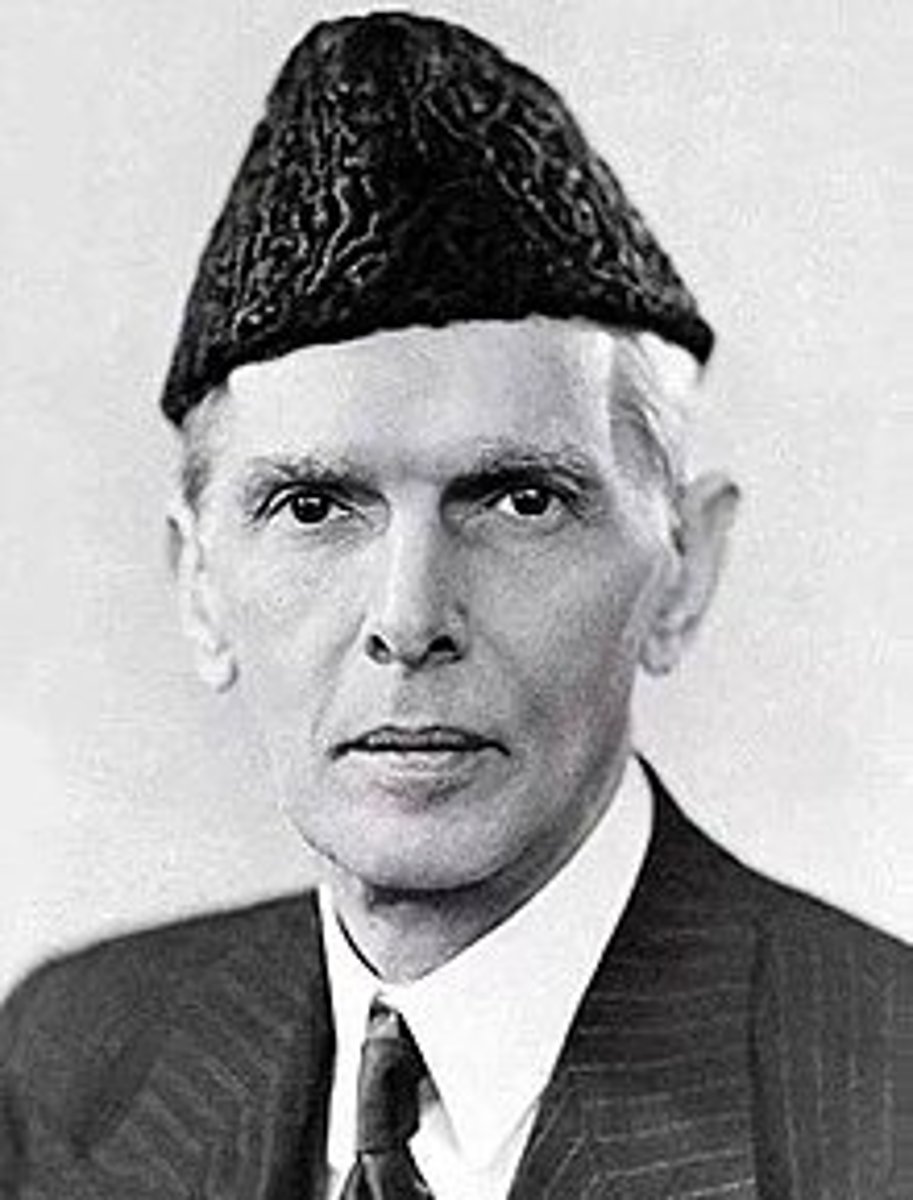
Kashmir
a hotly disputed region between India and Pakistan; still a source of conflict between the two countries today
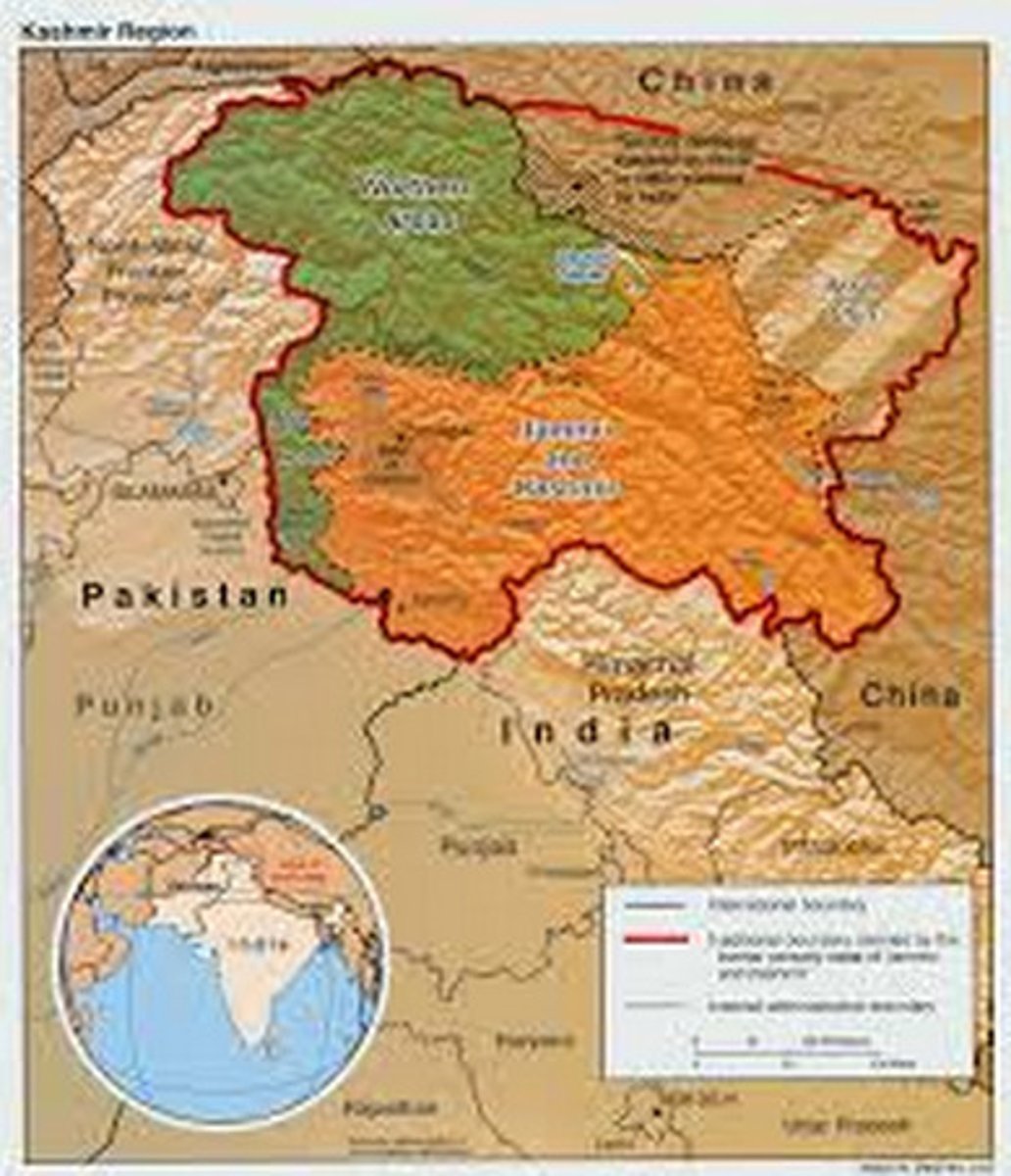
Indian National Congress
political party, founded by A.O. Hume, that worked to increase Indian self-government during the late 19th century
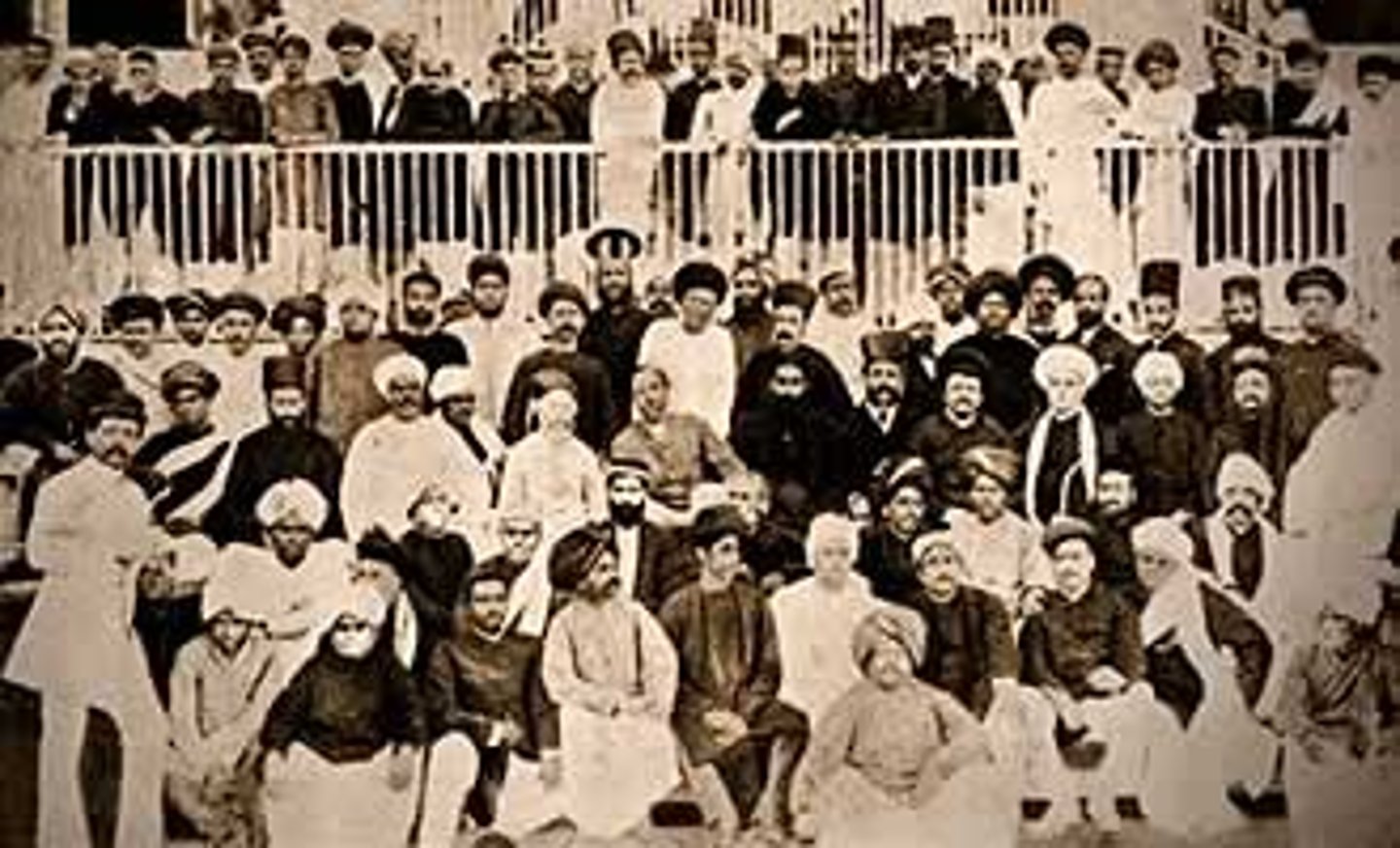
Muslim League
political party that was founded in response to the lack of Muslims in the Indian National Congress Party
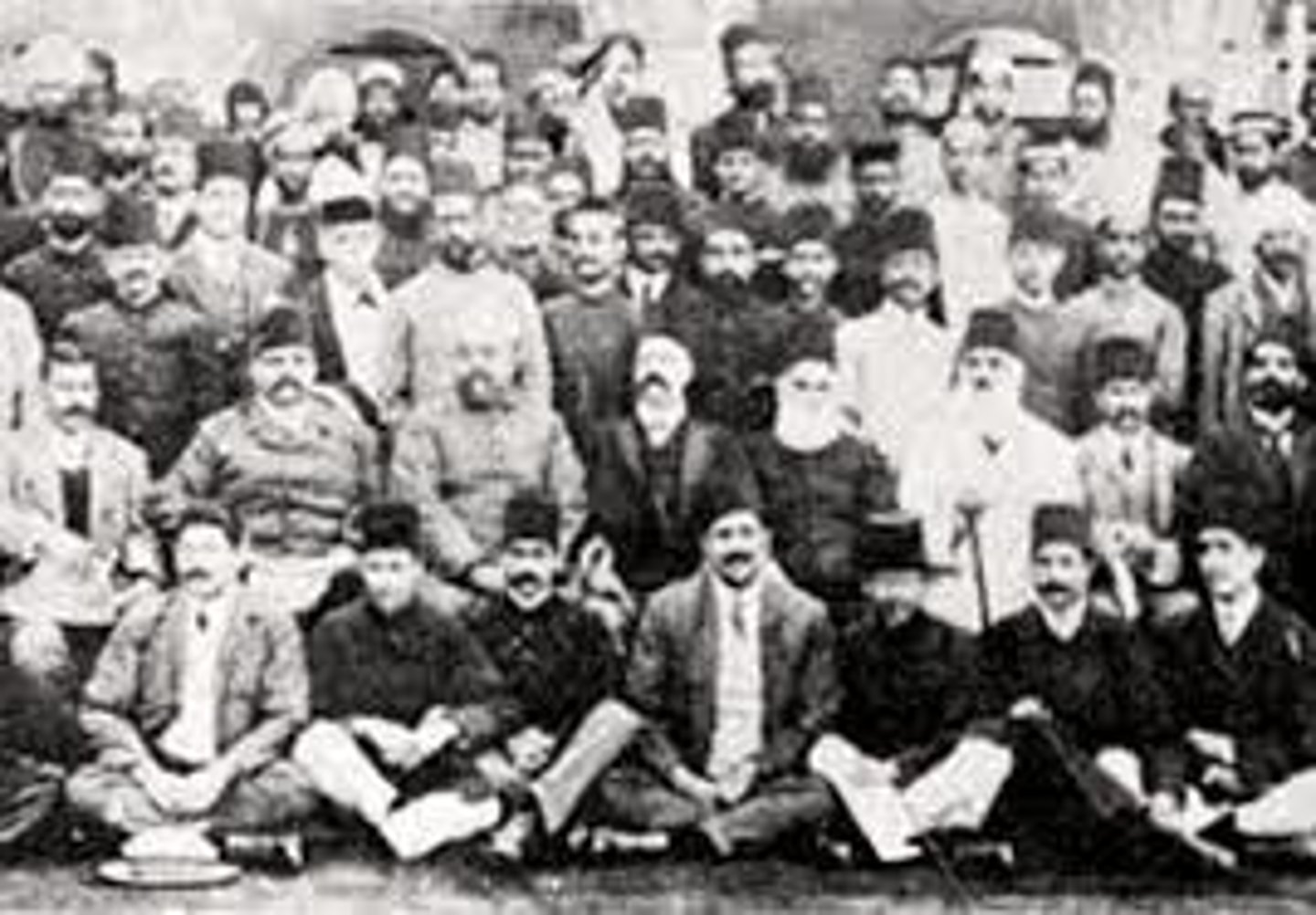
paternalism
a term that could be used to describe British attitudes towards India during the Age of Imperialism; implies that Indians were viewed as children who needed the guidance and advice of Europeans
Satyagraha ("soul force")
Sanskrit term that Gandhi used to describe his form of civil disobedience
Rowlatt Acts
series of laws, passed by the British after World War I, to prevent Indian protests for independence; resulted in the Amritsar Massacre
Opium Wars
a series of wars fought between China and Great Britain between 1839 and 1842. It was primarily about China's attempts to keep illegal substances out of its country, but in a larger sense was caused by European desires to open up Chinese markets for trade.
Boxer Rebellion
an early twentieth century event in which a Chinese anti-foreigner group, known as the Society of the Righteous and Harmonious Fists, attacked Western missionaries, businessmen, and diplomats within China. The government's refusal to crush the revolt led to European troops invading the country to put it down.
Mao Zedong
the leader of the Chinese Communist Party during the Civil War. Despite his break from traditional Marxist beliefs, his strong leadership made him a popular figure among Chinese Communists.
Long March
the 1934 forced retreat of Communist forces from the pursuing Nationalist Army during the Chinese Civil War. Although it resulted in many deaths for the Chinese Communists Party, it solidified the group and served as a source of inspiration for years to come.
Kuomintang
also known as the Nationalists, this was the name given to the party that opposed the Communists during the Chinese Civil War. Despite assistance from foreign powers such as Great Britain and France, they failed to win the Civil War and were exiled from China.
Jiang Jieshi (Chiang Kai-shek)
the leader of the Chinese Nationalist Party during the Civil War. His decision not to resist Japan's invasion into Manchuria cost him support among the Chinese people.
spheres of influence
regions over which a foreign state or organization has a level of cultural, economic, military, or political exclusivity; China was divided up into numerous ones of these during the 19th century.
Sun Yat Sen
the founder of the Chinese Nationalist Party who in 1911 helped to overthrow the last Chinese emperor; he was looked upon by future generations as a "founding father" of the Chinese Republic.
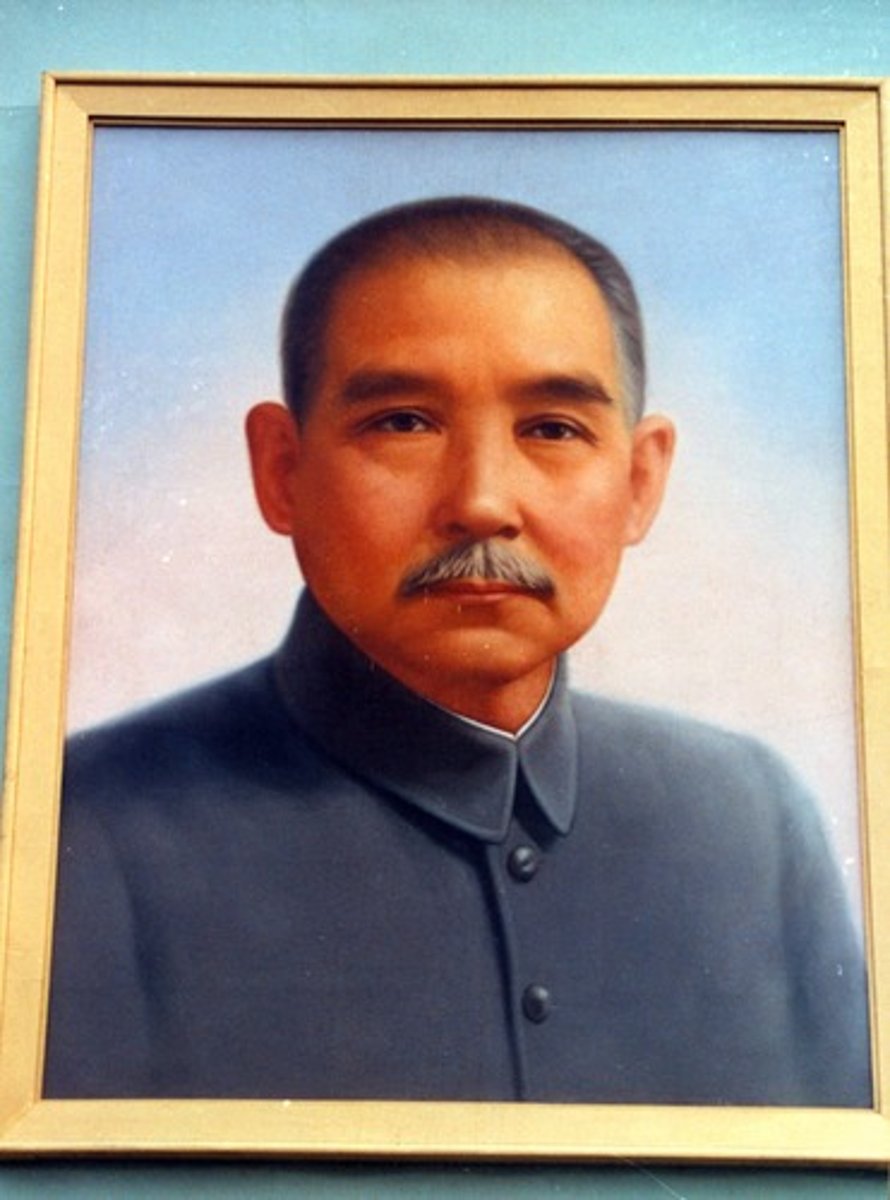
open door policy
a late nineteenth century diplomatic arrangement, set up by the United States, which allowed Western countries to have access to one another's spheres of influence within China; it was designed to allow Americans access to Chinese markets, as well as to prevent war between European powers.
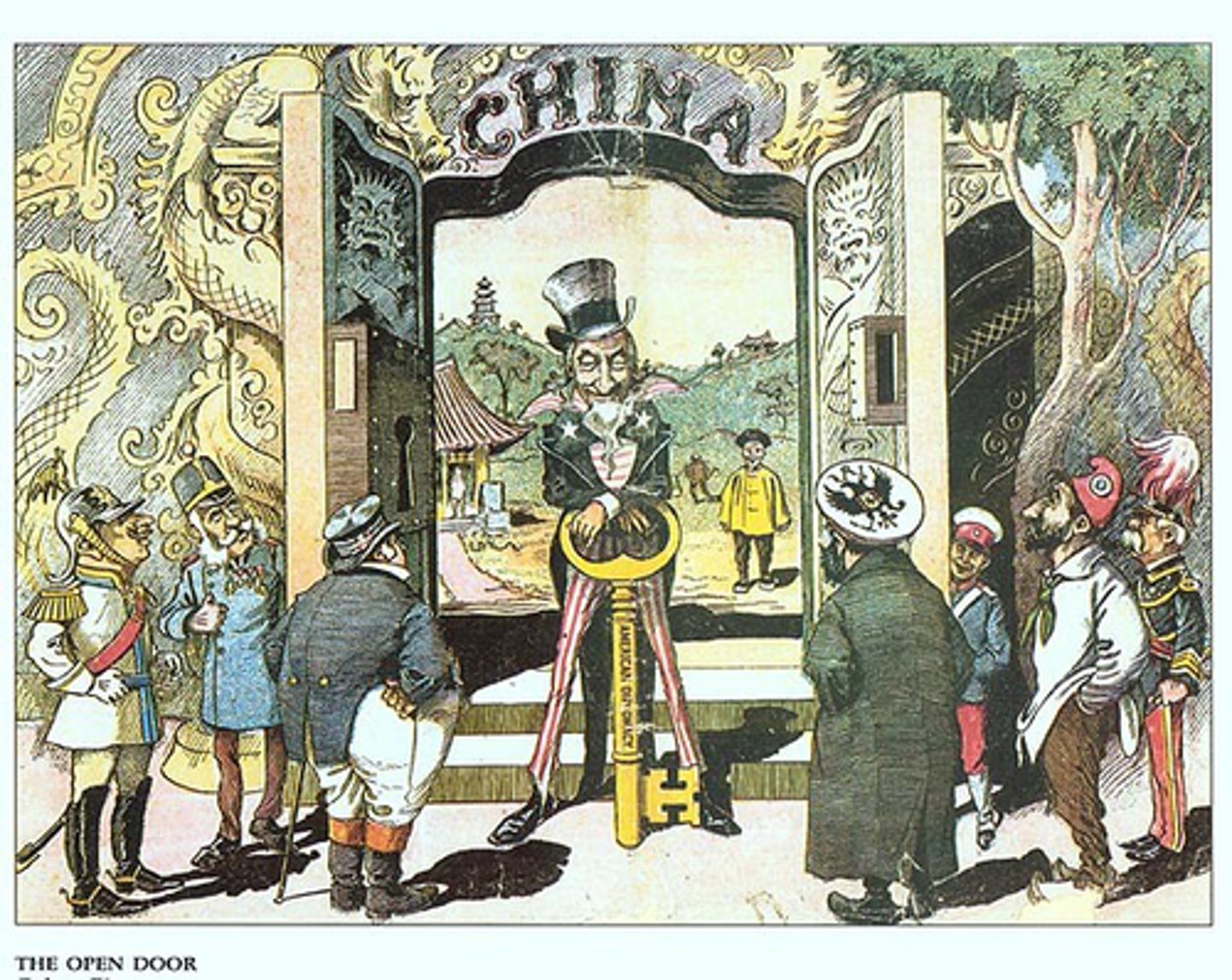
Dowager Empress Cixi
the leader of China during the later part of the 19th century. Her unwillingness to implement much needed reforms until it was too little, too late allowed for greater European control over China.
May Fourth movement
a nationalist uprising in China that occurred among students after World War One when the Treaty of Versailles gave China's Shandong Province from Germany to Japan
Taiwan
an island in southeastern Asia about 100 miles off the coast of mainland China in the South China Sea; it is where the Nationalist Party established a government after its loss in the Chinese Civil War
Mughal Empire
a period of Muslim rule over India from the 1500s to the 1700s
Taj Mahal
a beautiful tomb built by the Mughal ruler Shah Jahan to honor his wife
civil disobedience
a nonviolent, public refusal to obey allegedly unjust laws
Zheng He
Chinese admiral during the Ming Dynasty, he led great voyages across the Indian Ocean that spread China's fame and products throughout the region
Treaty of Nanjing
"unequal treaty" to end Opium War in which China had to accept British terms for peace, including giving up control of the island of Hong Kong
Hong Kong
a British colony in China, received after the first Opium War and returned to China in 1997
Taiping Rebellion
an unsuccessful, mid-19th century rebellion against the Qing Dynasty in China, led by Hong Xiuquan
Great Leap Forward
economic and social plan implemented in China from 1958 to 1961 which aimed to use China's vast population to rapidly transform the country from an agrarian economy into a modern industrial society
Cultural Revolution
campaign in China ordered by Mao Zedong to purge the Communist Party of his opponents and instill revolutionary values in the younger generation
"One China" principle
the policy maintained by the People's Republic of China that there is only one state called China, despite the existence of two governments that claim to be "China" (one on the Asian mainland, one on the island of Taiwan)
urbanization
term that refers to the growth in the size and number of cities
Adam Smith
the "father" of capitalism, he believed in free trade and that individuals should own and control their own property
Karl Marx
the "father" of communism, he believed that revolution would bring about a new economic order in which groups of people shared property
laissez faire
a French term for when the government stays out of, or keeps their "hands off", the economy
Berlin Conference
a meeting of European nations used to divide Africa through political methods rather than military methods
Social Darwinism
belief in "survival of the fittest" among human beings, or the belief that certain people have become powerful in society because they are innately better; it has been used to justify imperialism, racism, eugenics, and social inequality at various times over the past century and a half
mixed economy
an economy that has some aspects of both capitalism and socialism
steam engine
this was a new invention of the Industrial Revolution that used heat to produce energy; it was the main form of energy used by early factories
"white man's burden"
according to this 19th century idea, Europeans believed they were justified in taking over other countries because they had a "responsibility" to "uplift" non-Europeans and teach them about their civilization
The Communist Manifesto
this work, by Karl Marx, spelled out the basic ideas of communism
Industrial Revolution
the shift in human history from hand-made to machine-made goods; the period of rapid growth in the use of machines in manufacturing and production that began in the mid-1700s
Agricultural Revolution
a time when new inventions such as the seed drill and the steel plow made farming easier and less labor-intensive; as a result, fewer people were needed to farm and that made it possible for them to move to cities and work in the newly developing factory system
division of labor
breaking up a job into a number of separate tasks to be performed by different workers; this new process helped to speed up the production of goods during the Industrial Revolution
bourgeoisie
term often used, especially by Karl Marx, to describe the industrial middle class, including merchants, factory owners, and professionals
proletariat
term often used, especially by Karl Marx, to describe the industrial working class, including factory workers
capital
wealth in the form of money or other assets owned by a person or organization for a particular purpose such as starting a company or investing
King Leopold II (of Belgium)
European monarch who ruthlessly colonized and exploited the Congo in Africa during the Age of Imperialism; his actions led to the deaths of up to 10 million Congolese people
James Watt
Scottish engineer and inventor whose improvements in the steam engine led to its wide use in industry
capitalism
an economic system in which capital and property are owned and controlled by private individuals or companies
socialism
an economic system in which society, usually in the form of the government, owns and controls property and capital
communism
an economic system that advocates for a class war which will lead to a society in which all property and capital is communally owned
class conflict
Karl Marx's term for the struggle between the bourgeoisie and the proletariat; he saw it as a necessary step to achieving a communist society
imperialism
a policy of extending a country's power and influence through diplomacy or military force
Cecil Rhodes
British entrepreneur and politician involved in the forcible expansion of the British Empire from South Africa into Central Africa; had plans for a cross-continental "Cape to Cairo Railway"
cottage industry
manufacturing based in homes rather than in a factory, commonly found before the Industrial Revolution
the commons
a piece of land, and the resources on it, that was shared by the entire community and available for anyone's use; it was slowly eliminated during the Agricultural Revolution of the 1700s
tenement
a building during the early Industrial Revolution in which several families rented small rooms or apartments, often with little sanitation or safety
Maxim machine gun
the first automatic machine gun; invention that allowed Europeans to conquer much of the interior of Africa
quinine
a drug used for fighting malaria and other fevers
Menelik II
Emperor of Ethiopia who successfully played Italians, British, and French against each other during the Age of Imperialism, thus helping Ethiopia to maintain its independence
Battle of Adwa
battle in which the Ethiopian army defeated Italian colonial forces; it inspired many of Africa's later national leaders
Maji-Maji Rebellion
a failed 1905 revolt of east Africans that sought to defeat the German army by relying upon traditional beliefs
Mau Mau Rebellion
a 1950s uprising in Kenya by the Kikuyu people against British colonialism in their country; although not immediately successful, it did eventually contribute to Kenyan independence
decolonization
this term refers to the collapse of European colonial empires, much of it occurring after World War II, in which practically all former colonies in Asia and Africa gained their independence
individualism
an ideology that values the achievements, power, and worth of each person; giving priority to one's own goals over group goals
secularism
valuing and focusing on worldly matters and attainments as opposed to the spiritual or religious
classicism
having a great awareness of and appreciation for the works of Ancient Greece and Rome
humanism
belief that mankind's possibilities are limitless; pride in mankind and its achievements
Leonardo da Vinci
a well known Italian Renaissance artist, architect, musician, mathematician, engineer, and scientist; he is often looked at as a good example of a "Renaissance man", with his wide variety of interests and achievements
Martin Luther
a German monk who became one of the most famous critics of the Roman Catholic Church when, In 1517, he wrote The 95 Theses, which started the Protestant Reformation
Ninety-Five Theses
document written by Martin Luther and posted on a church door in Germany that listed arguments against the practice of the sale of indulgences by the Catholic Church
indulgences
a pardon once sold by the Catholic Church to reduce the time one's soul would spend in purgatory
scientific method
an empirical method of acquiring knowledge that has characterized the development of science since at least the 17th century; it involves formulating hypotheses, experimenting to test those hypotheses, and careful observation of the results
Heliocentric
a model of the solar system in which Earth and the other planets revolve around the sun
Galileo Galilei
Italian astronomer and mathematician who was the first to use a telescope to study the stars; in doing so, he discovered (among other things) that the moon was made of the same substances that Earth was
natural laws
laws that are determined by nature, not by mankind (e.g., the law of universal gravitation)
reason
the power of the mind to think, understand, and form judgments by a process of logic; increasingly relied upon by people during the Scientific Revolution to uncover truths about the world
absolute monarchy
a type of government that first emerged in Europe in the 17th century; an extension of new monarchy, this was a type of government in which a monarch ruled, and he/she was not limited or restrained by laws or a constitution
divine right of kings
the idea that monarchs are God's representatives on earth and are therefore answerable only to God
Louis XIV
absolute monarch of France who ruled for close to 60 years; he used various tactics, such as making use of his splendid palace of Versailles, to ensure that he had absolute authority within his kingdom
Versailles
a large royal residence built in the seventeenth century by King Louis XIV of France, near Paris; with its lavish gardens and fountains, it is considered a spectacular example of French classical architecture
Estates General
France's traditional national assembly (parliament) which represented the French people; French king Louis XIV never once summoned it, thus allowing him greater power
Constitutional Monarchy
a system of government in which the king or queen's power is limited by law, and in which they typically share power with an elected assembly or parliament
Natural Rights
benefits that are not dependent on the laws, customs, or beliefs of any particular culture or government, and are therefore universal and inalienable
philosophes
French term used to describe the intellectuals of the Enlightenment
Voltaire
French philosopher and writer whose works epitomize the Age of Enlightenment; he was most fond of attacking religious intolerance, and he was very supportive of freedom of speech
"Old Order"
French social system that divided the people into three categories: the clergy, the nobility, and everyone else
Declaration of the Rights of Man and Citizen
statement of fundamental political rights adopted by the French National Assembly at the beginning of the French Revolution; it embodied many ideals of the Enlightenment
National Assembly
a French congress established by representatives of the Third Estate on June 17, 1789, to enact laws and reforms in the name of the French people
Louis XVI
King of France during the French Revolution, was executed by the guillotine
religious tolerance
the acceptance of different religious beliefs and customs
Separation of Powers
the division of authority among the legislative, executive, and judicial branches of government; usually maintained with a system of checks and balances
radical
in terms of the traditional political spectrum, it is someone on the far left who favors rapid and great change; they may want to completely replace the current system of government